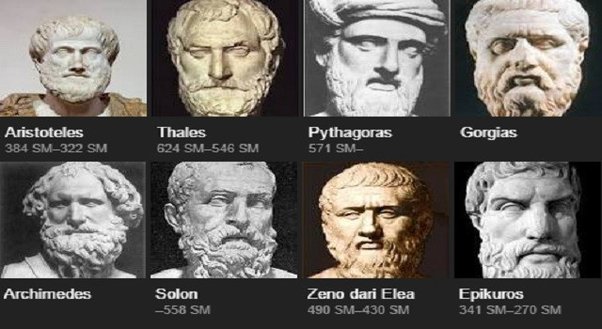The term γνουσ (pronounced “gnous”) carries significant weight in the realm of ancient Greek philosophy and thought. Originating from the ancient Greek word for knowledge or awareness, γνουσ has evolved over centuries to represent a deeper, more intuitive form of understanding.
This article delves into the historical context of γνουσ, its philosophical implications, and its relevance in modern discussions.
Historical Context of γνουσ:
1. Ancient Greek Philosophy:
The concept of γνουσ is deeply rooted in ancient Greek philosophy, where it was explored by some of the most influential thinkers of the time.
For philosophers such as Plato and Aristotle, γνουσ represented not just factual knowledge but a more profound, intuitive understanding of the world.
2. Plato’s Interpretation of γνουσ:
Plato, one of the most prominent figures in ancient Greek philosophy, saw γνουσ as a form of higher understanding. In Plato’s view, γνουσ was linked to the realm of ideas and forms, which are abstract, perfect templates of reality.

For Plato, γνουσ was not merely about accumulating facts but about grasping the true essence of concepts and entities beyond their material manifestations. This philosophical approach highlights γνουσ as a pathway to deeper insight and enlightenment.
3. Aristotle’s Perspective on γνουσ:
Aristotle, another towering figure in Greek philosophy, offered a different but complementary perspective on γνουσ. He associated γνουσ with practical wisdom, or phronesis.
For Aristotle, γνουσ was integral to living a virtuous life, as it involved the application of knowledge in practical, ethical decision-making. Unlike Plato’s abstract forms, Aristotle’s γνουσ emphasized actionable wisdom that guided everyday actions and choices.
Evolution of γνουσ Over Time:
1. The Transition from Ancient Greece to Modern Thought:
As the concept of γνουσ traveled through history, it underwent various transformations. In the medieval and Renaissance periods, γνουσ was often intertwined with religious and mystical interpretations, reflecting a shift from purely philosophical to more spiritual connotations.
2. Contemporary Understanding of γνουσ:
In modern times, the term γνουσ continues to resonate, though its usage has expanded. Today, γνουσ is often discussed in the context of intuitive knowledge and holistic understanding.
It encompasses not just academic or theoretical knowledge but also an intrinsic, experiential grasp of complex ideas and experiences.
The Significance of γνουσ in Modern Discourse:
1. γνουσ in Psychology and Cognitive Science:
In psychology and cognitive science, γνουσ represents the deeper layers of human understanding and intuition. Researchers and theorists explore how γνουσ influences decision-making, creativity, and personal growth.
The term highlights the importance of integrating intuitive knowledge with analytical thinking to achieve a comprehensive understanding of human behavior.
2. γνουσ in Education and Learning:
The concept of γνουσ also plays a role in contemporary educational philosophies. It underscores the value of experiential learning and the development of critical thinking skills.
Educators emphasize the importance of nurturing students’ intuitive and holistic understanding, which aligns with the broader definition of γνουσ.
γνουσ and its Influence on Art and Literature:
The concept of γνουσ has also had a significant impact on art and literature, reflecting the deeper layers of human consciousness and perception. In ancient Greek literature, the term often implied an understanding that transcended mere surface-level interpretation.
For example, the works of Homer and Sophocles sometimes alluded to γνουσ as a form of insight or foresight that characters possessed, which influenced their decisions and actions. In modern literature, γνουσ continues to be relevant, especially in works that explore themes of intuition and self-awareness.
Writers and artists who engage with γνουσ are often interested in exploring how characters achieve a profound understanding of themselves and their world, reflecting the term’s broader implications beyond mere knowledge.
γνουσ and its Role in Eastern Philosophies:
Interestingly, the concept of γνουσ finds parallels in various Eastern philosophies, which emphasize similar notions of intuitive knowledge and deep understanding. For instance, in Taoism and Buddhism, there is an emphasis on a kind of knowing that transcends intellectual learning.
Taoism speaks of a natural, effortless understanding that aligns with the flow of the universe, akin to the γνουσ concept. Similarly, in Zen Buddhism, the notion of satori represents a sudden, intuitive grasp of reality that mirrors the deeper, holistic insight associated with γνουσ.
These Eastern traditions resonate with the ancient Greek understanding of γνουσ as a profound, intuitive awareness that integrates knowledge with a more fundamental understanding of existence.
The Impact of γνουσ on Modern Philosophical Thought:
In contemporary philosophical discussions, γνουσ has influenced various schools of thought, particularly those concerned with epistemology and metaphysics. Modern philosophers have reinterpreted γνουσ to explore questions about the nature of knowledge, consciousness, and the limits of human understanding.

For instance, existentialist philosophers might use γνουσ to discuss the intuitive grasp of one’s purpose or existence beyond rational analysis.
In epistemology, the concept of γνουσ informs debates about the relationship between empirical knowledge and intuitive understanding, suggesting that true comprehension often involves integrating both forms of knowledge. This ongoing dialogue reflects the term’s enduring relevance in addressing complex philosophical questions.
γνουσ in the Context of Personal Development and Self-Realization:
On a personal level, γνουσ has implications for self-development and the journey toward self-realization. In modern self-help and personal growth contexts, γνουσ is often associated with achieving a deeper understanding of oneself and one’s purpose.
Techniques such as mindfulness, meditation, and reflective practices are seen as ways to cultivate γνουσ, helping individuals connect with their inner wisdom and gain clarity about their goals and values.
The idea is that by developing a profound, intuitive grasp of one’s inner self, people can make more informed and authentic choices in their lives.
This application of γνουσ underscores its practical significance beyond academic or philosophical discourse, highlighting its role in personal growth and well-being.
γνουσ and Its Implications for Ethics and Morality:
In the realm of ethics and morality, the concept of γνουσ plays a crucial role in understanding the nature of moral judgments and ethical behavior. Unlike mere knowledge of rules and norms, γνουσ encompasses a deeper, intuitive grasp of what is right or wrong.
Philosophers such as Aristotle, who linked γνουσ to practical wisdom, suggested that true ethical behavior arises from an inner understanding of moral principles rather than adherence to external guidelines alone.
This deeper awareness helps individuals navigate complex moral dilemmas with a sense of moral clarity and integrity. By integrating γνουσ into ethical theory, scholars and practitioners explore how individuals can develop a more nuanced and empathetic approach to ethical decision-making.
γνουσ in the Evolution of Scientific Thought:
The evolution of scientific thought also reflects the impact of γνουσ, particularly in the way scientific understanding progresses.
Historically, breakthroughs in science often required more than just empirical data; they demanded a profound intuitive insight into underlying principles and patterns. For instance, Albert Einstein’s theory of relativity was not solely a product of mathematical calculations but also involved a deep, intuitive understanding of the nature of space and time.
In contemporary science, γνουσ continues to be relevant as researchers seek to integrate intuition with empirical evidence to make groundbreaking discoveries.
This blending of intuitive insight with scientific rigor underscores the broader implications of γνουσ beyond traditional knowledge frameworks.
γνουσ and Its Role in Conflict Resolution:
The concept of γνουσ also finds significant applications in conflict resolution and negotiation. Effective conflict resolution often requires an intuitive understanding of the underlying issues and emotions of the parties involved.

γνουσ facilitates this deeper awareness by enabling mediators and negotiators to perceive the nuances of interpersonal dynamics and underlying interests that may not be immediately apparent.
This intuitive grasp helps in crafting solutions that address the root causes of conflicts rather than just the surface-level symptoms.
By leveraging γνουσ in conflict resolution, practitioners can achieve more meaningful and sustainable resolutions, fostering better relationships and mutual understanding.
γνουσ and Technological Innovation:
In the field of technological innovation, γνουσ plays a pivotal role in driving creative problem-solving and visionary thinking. Innovators and entrepreneurs often rely on a deep, intuitive understanding of emerging trends and user needs to develop groundbreaking technologies.
This intuitive insight allows them to foresee future possibilities and create solutions that address complex challenges in novel ways.
For example, the development of technologies like artificial intelligence and quantum computing involves not only technical knowledge but also a profound grasp of how these technologies can reshape industries and society.
The concept of γνουσ highlights the importance of integrating intuitive foresight with technical expertise to drive innovation and technological advancement.
Conclusion:
The term γνουσ, with its rich historical background and evolving meanings, offers a profound perspective on knowledge and awareness. From its roots in ancient Greek philosophy to its modern interpretations, γνουσ represents a deeper, more intuitive understanding of the world. Whether in philosophical discourse, psychological research, or educational practices, γνουσ continues to be a vital concept, reflecting our ongoing quest for a more comprehensive grasp of knowledge and insight.
By integrating γνουσ into various fields of study, we honor its historical significance and acknowledge its relevance in shaping our understanding of complex ideas and experiences.
